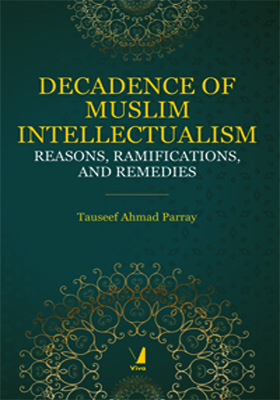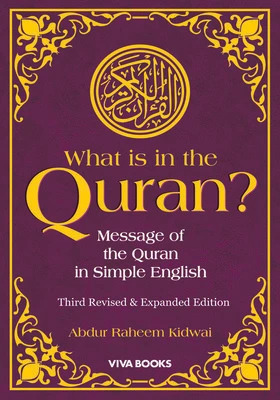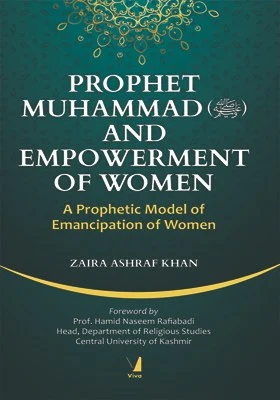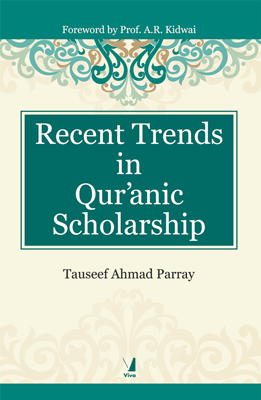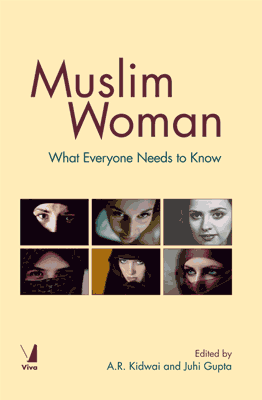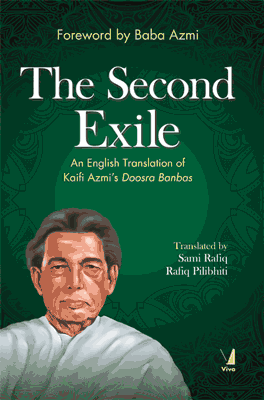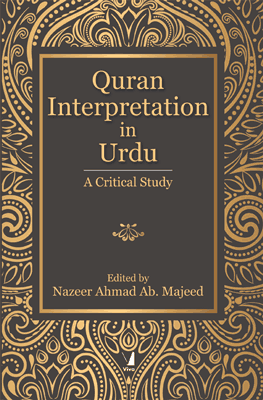Books by Tauseef Ahmed Parray
Decadence of Muslim Intellectualism
Reasons, Ramifications, and Remedies
₹985.50 ₹1,095.00 Save: ₹109.50 (10%)
Go to cartISBN: 9789390054930
Bind: Hardback
Year: 2021
Pages: 224
Size: 6 x 9 Inch
Publisher: Viva Books Originals
Sales Territory: Worldwide
Reviews:
“Dr Tauseef Ahmad Parray has published extensively on the Muslim intellectual history. His latest book, Decadence of the Muslim Intellectualism: Reasons, Ramifications, and Remedies, stands out as an incisive critique on the decline that has regrettably crept into the Muslim learning. His chapter “What (and Where) Went Wrong?” in particular, is an eye-opener. Equally remarkable is the depth and breadth of his brilliant analysis, especially of the present scenario. This compelling book will be read with much profit by all those interested in Islamic history, Muslim thought and Cultural studies.”
—Prof. Abdur Raheem Kidwai, Professor, Dept. of English; Director, UGC-Human Resource Development Centre; and K.A. Nizami Centre for Qur’anic Studies, Aligarh Muslim University, India
“For Muslim scholars and intellectuals, the question of Muslim intellectual decay has been one of the most worrying questions. A number of Muslim intellectuals, in different eras, have attempted to look into, and analyse, the causes and factors that were responsible for the Muslim intellectual decay. The present work is a serious and valuable effort which attempts to find an answer to the same (perturbing) question.”
—Dr. Muhammad Razi Ul Islam Nadwi, Secretary, Shar’iah Council, Jamm’at-i-Islami Hind, New Delhi; Assistant Editor, Quarterly “Tehqeeqat-e-Islami”’ Aligarh, India
“The history of Muslims intellectual tradition is an engaging discourse on the rich repository of Islam’s civilizational role in world events. A critical examination of the factors contributing to its decline also points out to the academic potential that can be harnessed to forge a renewed intellectual tradition shorn of the apologetic overload. Dr Tauseef Parray is a leading scholar of contemporary Islamic studies who has to his credit several widely-acclaimed works. His critique is a cogent response to the oft-repeated refrain of Muslim decadence by scholars tinged with a West-centred mindset. This work is a must-read for academics, researchers and students seeking to understand the various strands that have defined the intellectual tradition.”
—Dr. Abdul Kader Choughley, Independent Researcher/Author on “Contemporary Islamic Thought in South Asia”, Springs, South Africa
Description:
The Islamic foundational sources—the Qur’an and the hadith—are full of references for knowledge, learning, and education (intellectualism) and make the seeking of knowledge as a religious obligation and a central part of belief. History bears witness to the fact that Muslims, attaining insights from these references and turning theory into practice, made not only significant contribution to various branches of knowledge which resulted in producing a great intellectual legacy but have been leading the world for a period of over 500 years, during the Middle Ages, and thus, made an outstanding manifestation on the “intellectual map” of the then world. It has been described as “one of the brightest chapters in the intellectual history” of the world and “one of the most brilliant civilizations in the history of humanity.” However, things have changed dramatically and drastically from the beginning of the early modern era, and tables have now turned upside down as far as “Muslim intellectual tradition” is concerned, resulting in “instability:’ “stagnation”’ and a subsequent “collapse” of the “Muslim intellectualism”. The major theme of this work is to provide a succinct overview of the concept of Knowledge in the Qur’anic perspective, to highlight/describe, precisely, the rise of “Muslim intellectualism”—from its formative phase to the golden age (7th-13th century CE), reasons and ramifications of its fall (decadence)—from 13th century CE onwards—and to provide some (possible) remedies to overcome this “decadence” and “deficit” in the present scenario. In other words, this work is a modest endeavor to find answers to these nagging and niggling questions about the intellectual history of Muslims: what were the reasons that led to the fall of Muslim intellectual legacy, of “Muslim intellectualism”?; how Muslims can rise again from this “slumber” to make their presence on the “intellectual map” of the 21st century global world? It is, thus, hoped that this book will prove beneficial for knowing the reasons and ramifications of the “decadence of Muslim intellectualism” and the remedies and reforms that are needed to fill this deficit.
Target Audience:
This book is for academics, researchers and students who are interested in Islamic history, Muslim thought and cultural studies.
Preface
Abbreviations
Chapter 1. Prologue: The Qur’an as the “Epitome of Knowledge”
Chapter 2. Islamic Concept of Knowledge (‘Ilm)
Chapter 3. Muslim Intellectual Contribution: From Formative Period to the “Golden Age”
Chapter 4. What (and Where) Went Wrong?
Chapter 5. Post-Colonial Era Challenges and the Muslim World (1950s onwards)
Chapter 6. The Other Side of the Coin: Internal Challenges
Chapter 7. Some Important Muslim Research Institutes/Centers and “Think Tanks” Around the World
Chapter 8. Epilogue: The (Possible) Way Out from Current “Muslim Intellectual Deficit”
Appendix
Bibliography
Index
About the Author:
Tauseef Ahmad Parray is presently working as Assistant Professor, Islamic Studies, in Higher Education Department, Jammu & Kashmir. He holds masters, PhD, and postdoctorate degrees in Islamic Studies from the University of Kashmir, Srinagar (2006-08), Aligarh Muslim University (2014), and Iqbal International Institute for Research & Dialogue (IRD), International Islamic University, Islamabad (2015), respectively.
He is the author of Towards Understanding Some Qura’nic Terms, Concepts, and Themes (2017), Muslim Intellectual Deficit: Reasons & Remedies (2018), Mediating Islam and Modernity: Sir Sayyid, Iqbal, and Azad (2019), Exploring the Qur’an: Concepts and Themes (2019), Recent Trends in Qur’anic Scholarship (2020) and 21st Century Islamic Scholarship (2021). He has also published in numerous reputed academic journals, magazines, and newspapers, from over a dozen countries, around the world. He has also contributed book chapters and encyclopedia entries. He is on the “Editorial” board (and is also a Reviewer) of various journals based in Indonesia, Pakistan, Turkey, and the UK. His major areas of interest are: Islam and Democracy; South Asian Modernist/Reformist Thoughts; Islamic Intellectual Tradition; Recent Trends and English Scholarship in Qur’anic Studies.
